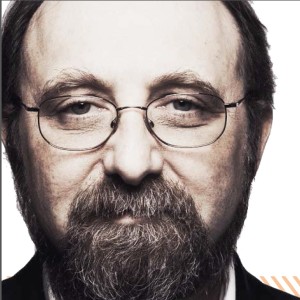 In a packed Brazilian stadium during the 2012 World Cup game, a paraplegic man edged toward a soccer ball outfitted in a robotic suit allowing his movement. The first ceremonial kick made history when toe touched ball and the paralyzed 21-year-old proved he could walk again.
In a packed Brazilian stadium during the 2012 World Cup game, a paraplegic man edged toward a soccer ball outfitted in a robotic suit allowing his movement. The first ceremonial kick made history when toe touched ball and the paralyzed 21-year-old proved he could walk again.
The man behind the ground-breaking technology? A Brazilian scientist named Miguel Nicolelis.
The renowned scientist will detail the endeavor when he visits CSU on Thursday, Sept. 17, in the LSC Grey Rock room from 4:30-5:30 p.m. as part of the ASPIRE Speaker Series, an Office of the Vice President for Research initiative.
Known as the “Walk Again Project,” the Duke University-funded endeavor was set in motion by Nicolelis’ previous research — most notably his work in reading monkey thought. Along with Duke University researchers, he implanted electrode arrays into a monkey’s brain that were able to detect the monkey’s motor intent allowing its thoughts to control the movement of a robotic arm.
As a speaker in the ASPIRE series, which stands for Accelerators of Science: Pioneers, Innovators, Researchers and Educators, Nicolelis falls into an elite group of scientists whose accomplishments have far-reaching impact in their fields, said Alan Rudolph, CSU’s Vice President for Research
“Dr. Nicolelis’ work is revolutionary and has spawned the field of brain machine interfaces,” said Rudolph. “The marriage of brain and machine has been fueled by the development of high density interfaces that extract and interpret information codes from the brain.”
Nicolelis, whose work in harnessing brainwaves for use in robotic systems is known as “brain-machine interface,” will also cover the future of the biotechnology industry — where it’s headed and who is needed to make great leaps and bounds.
“The first focus on motor system codes will unlock transformative applications in prosthetics and communications that will have impact for many years to come. Dr. Nicolelis interdisciplinary approach to neuroscience and engineering is an inspiration for our students and faculty,” said Rudolph.
The ASPIRE event is free and open to the public. Registration is required.